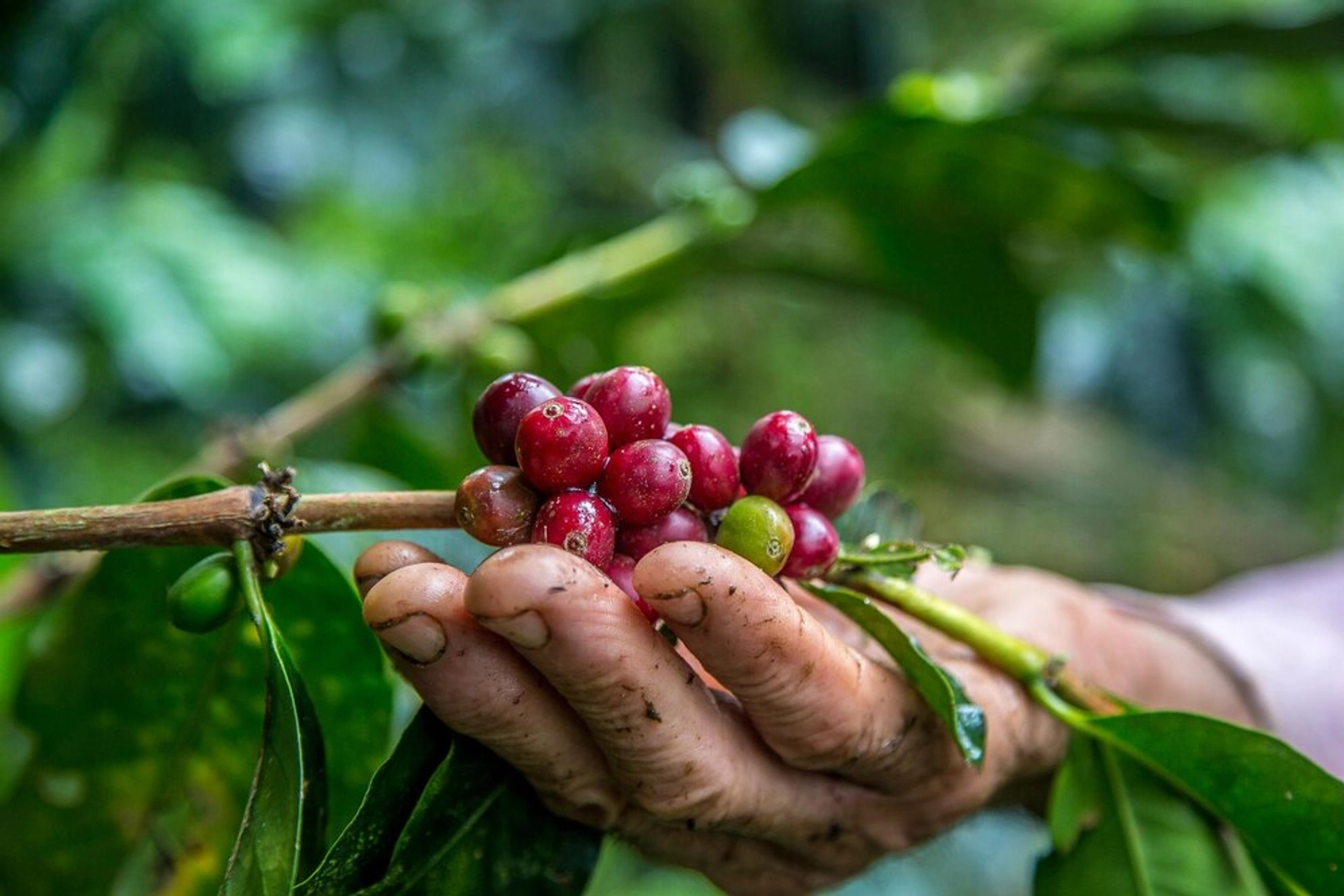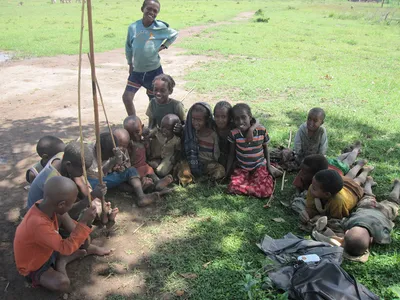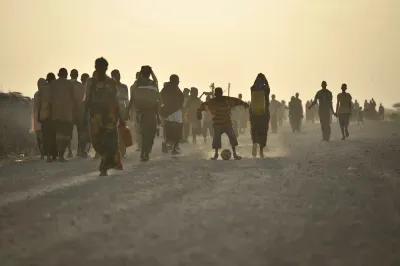The origin of coffee: what Ethiopians actually say

A popular legend says coffee was first discovered in the 9th century by an Ethiopian goatherd named ‘Kaldi’ who noticed his goats become unusually energetic after consuming the plant’s sweet cherries. Intrigued, Kaldi tried it himself and told his father. “Word spread, and soon coffee became an integral part of Ethiopian culture,” writes Mark Pendergrast in his widely read book, Uncommon Grounds: The History of Coffee and How It Transformed Our World.
The thing is, this Ethiopian legend…is not Ethiopian at all. It first appeared in a 1671 treatise by Antoine Faustus Nairon, a Maronite professor of Oriental languages, and does not seem to be mentioned in other Arabian traditions.
Another origin story often mentioned in Arabian traditions holds that it was the civet cat that brought the plant from central Africa to the mountains of the Arsi and Ittu (Hararghe) Oromo, where it was cultivated for at least five centuries until merchants introduced it to Arabia in the 15th century.
The BBC recently facilitated a discussion among historians and anthropologists on the same topic. The basis for the discussion was a book titled “The History of Coffee and the Socio-Economy of the Five Gibe States,” published in January. The Five Gibe States (1830-1932) were independent kingdoms in what is now southwestern Ethiopia.
The author of the book, Salim Amin, is a former community radio journalist in Jimma who was known for producing programs such as “Sona Shanan Gibee,” which focused on the culture, history, and economy of the Five Gibe States.
Salim agrees that the origin of coffee has been debated for a long time, but he says he has evidence that it was discovered in South Western Ethiopia, in Gomma district, Cocee, at specific a place called Kattaa Mudugaa.
“Coffee is inseparably tied to the Oromo of the Five Gibe States,” Salim argues. “One can never miss coffee in an Oromo ceremony, from birth to marriage and all the way to death. It is part of their economy and their very livelihood.”
Dr. Dheressa Debu, a historian at Jimma University who also serves as the director of the Oromo Studies Institute (OSI), says, “Coffee was first used as food, roasted and eaten in Oromo culture.” For at least two thousand years, Oromos used roasted coffee beans mainly as sustenance during long journeys. The transition to drinking coffee came later, through various developments, Dr. Dheressa explains. “There is evidence pointing to Cocee, Kattaa Mudugaa, as the place of its origin.”
Dr. Dheressa says there are other accounts that point to a place called Mankira in Kaffa. People from Yemen claim that, even though the beans themselves must have come from Ethiopia, it was them who transformed coffee into a beverage. ” Beyond the Gibe region, wherever Oromos live, coffee holds a central place. “Butter is commonly used to prepare roasted coffee. Whether eaten or drunk, it is inextricably linked to cattle and livestock culture among the Oromo,” adds Dr. Dheressa.

In Oromo tradition, when a girl is proposed to, her family receives grass and coffee as a sign. Following that, coffee is served during various ceremonies, such as weddings.
Dr. Dheressa cites a common saying in Afaan Oromoo—’Buna fi Nagaa hin dhabina’ (May you never lack coffee and peace)—as evidence of how deeply coffee is linked to harmony and community well-being among the Oromo.
Professor Tesemma Ta’a, a historian at Addis Abeba University, agrees that Salim’s book has reignited the debate.
He clarified that some argue that coffee was discovered elsewhere: “The author went to those places, asked the people, gathered oral accounts, and wrote about where coffee was discovered.”
According to Professor Tesemma, this is not a simple historical debate, but rather one about value and recognition. “In this debate, the author has gathered significant evidence to demonstrate where coffee originated. He also emphasized that coffee is inextricably linked with the Five Gibe States, and its immense value in Oromo culture, particularly its connection to the Gibe region cannot be overstated,” Professor Tesemma told the BBC.
Coffee is present in every aspect of Oromo tradition, says Dr. Gemetchu Megerssa, a promenant anthropologist. “Marriage cannot take place without coffee, childbirth cannot be celebrated without coffee, and mourning the dead, Gadaa rituals, rites of passage, and social gatherings—none of these happen without coffee.” It is part of the Gadaa system, part of the culture, and part of the Qaalluu institution.
Abba Biyya Abba Jobir, the grandson of Abba Jifar II, the last king of the Kingdom of Jimma, on his part says there is an agreement that coffee’s origin is Ethiopia. “That is the main point.” He adds, “Within Ethiopia, some say its origin is Gomma, at Cocee; others insist it’s Kaffa, while still others claim it came from Sidama. But whether here or there, the origin is within Ethiopia. From here, the Arabs took it to their land and named it ‘Coffee Arabica.’”
Dr. Jira Mekonnen, an anthropologist from Jimma University who conducted his PhD research on coffee and its relationship with the Oromo people, agrees that there are many different perspectives on the discovery of coffee. However, he cautions the answer requires confirmation through scientific evidence and archaeological proof. “Since coffee is a plant that grows naturally in the forest, it can spread across similar ecological zones, crossing boundaries and thriving under different trees, along streams, and in various locations. So saying ‘coffee was discovered here or there’ without further investigation feels unconvincing to me.” The more pertinent question to ask should be, “Who were the first people to use coffee, and how did they integrate it into their culture and way of life?”
The Oromo in the Gibe region, in particular, use coffee in a deeply integrated way within their daily lives. Even the aroma of coffee smoke is thought to ascend to Waaqaa, the almighty, in Oromo religion. The Borana Oromo, who live on both sides of the Kenya-Ethiopia border, share this belief. Thus, coffee is not only a drink but also a medium for reconciliation, prayer, peace, and dialogue.
“Without coffee, life itself would be unfathomable.”
We need your support
We trust you found something of value in this article. If so, we kindly ask you to consider helping Curate Oromia continue its work.
If you believe in the importance of independent voices and honest reporting, we invite you to support our efforts through our GoFundMe campaign.
Every contribution, however small, goes directly to our writers and the expansion of our reach.
Thank you for your support.



